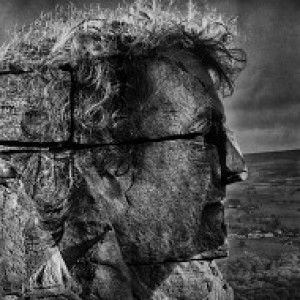Going Ecotarian
Back in November, Forrest and I went vegan for the month. I was purist about it—as far as I’m aware, at least—until the penultimate day when I succumbed to a piece of amazing-looking homemade flapjack while out on a walk with some friends. I decided to assume it had been made with vegetable oil. I didn’t check. I knew it had been made with butter.
The main point of the exercise was to find out what it was like to follow a vegan diet: the difficulties encountered, how it made us feel. I’d tried this once before, back in my early twenties, and it had proved impossibly hard. Following a strict vegan diet then meant pretty much becoming a social pariah. It was very difficult to eat out at a restaurant or accept a dinner invitation. This time around was a whole different experience. I encountered no situation where there was any problem at all. A few hosts were more than willing to cook vegan and all the restaurants visited had vegan options, ones that I might well have ordered anyway, they looked so good on the menu. All the cafes were able to offer milk alternatives and vegan goodies. It was clear that it hasn’t just become acceptable to be vegan now but perfectly normal. Ordinary people have forced a change.
I think I can honestly say there was only one thing I badly missed and that was cheese. The vegan alternatives, in this instance, just didn’t cut the mustard. Forrest felt the same way. The first thing I ate after breakfast on Dec 1st was grilled cheese on toast, which tasted out of this world. On the other hand, I was in no rush to start adding genuine cow’s milk to my tea and cereal. Initially, we had bought almond milk as a replacement, which tasted great before we understood the size of its giant environmental footprint. We then moved to oat milk (as blipped) and we’ve not gone back. I’ve come to prefer its taste. I’ve been pleasantly surprised at how quickly the palette adjusts. And I’m sure I can’t be unique in that way. It’s easy to make these changes once we put our mind to it. It’s no different to giving up sugar in tea and coffee.
It should be stated at this point that I haven’t become vegan. It’s too extreme. And my first thoughts were that I wanted to get away from labelling myself like that. They make life easy in some ways, but rather difficult in others. Being vegan would mean having to deny myself the offer of eggs from my neighbour’s ex-battery rescue hens. Those hens are enjoying their last lease of life and it would make no sense not to eat the wonderful eggs they lay. We like things to be black and white, but we live in a complex world where everything is some far more subtle shade of grey.
In the early eighties, soon after I lapsed from vegan to vegetarian, I lapsed further to become officially pescatarian. I had spent a week on the east coast of Africa where there wasn’t much else to eat other than freshly caught fish. Back home, it was all too easy to carry on, despite the vast difference in the scale of the fishing involved. I drew an arbitrary line, although I still tended to call myself vegetarian since, to my mind, the word pescatarian felt like it should apply to someone who only ate fish.
Although I wanted to avoid labels, I’ve realised that’s a hard thing to do. A simple label can answer a question in a succinct way that would otherwise require reams of explanation. I’ve therefore decided, when it comes to diet, to call myself an ecotarian. Rather than define it rigidly, it’s best regarded as an aspiration to try to eat foods, when a choice is available, with the minimum environmental impact. It’s an aspiration to eat with a mind to a sustainable future, without getting too stressed about it—which isn’t good either. I will aim to eat vegan when I can but be relaxed about it when it’s not possible or inconvenient. And I’m going to eat eggs and cheese, but not in vast quantities. They will be luxuries. And will likely taste all the better for being such.
The conclusion from our November experiment was that we both enjoyed our food more during the month, having put more effort into cooking tasty and interesting things. We also felt better in ourselves. It’s very hard to assess in an objective way, but it felt like we had more energy. Forrest has now become pescatarian as a result, having realised that he didn’t miss eating meat. Although I’ve enjoyed eating fish on a couple of occasions, when fed to me, I’ve felt no inclination to buy it for myself.
Changing our diet is the most important thing that any of us can do for the environment right now. All those tiny micro-decisions made by ordinary people at the supermarket checkout add up to have a major influence on how land will be utilised in the near to medium future. Less demand for animal products will mean more land coming available to plant trees and crops to feed the world more efficiently. Think about it.

Comments
Sign in or get an account to comment.


